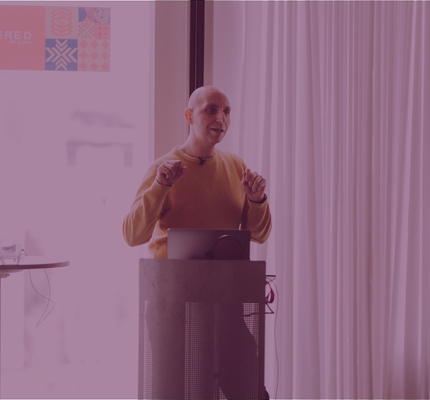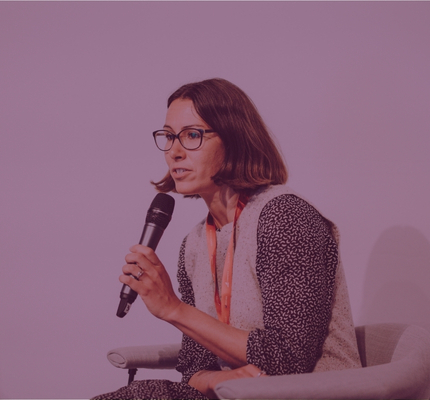
TV
The Future of Discovery: Chat GPT, Open AI, Conversational Commerce
In an engaging and thought-provoking panel discussion at the Discovered London conference, industry experts convened to delve into the future of ChatGPT, OpenAI, and Conversational Commerce.

In an engaging and thought-provoking panel discussion at the Discovered London conference, industry experts convened to delve into the future of ChatGPT, OpenAI, and Conversational Commerce. The conversation touched on the implications of these rapidly advancing technologies on society, business, and personal life, as well as the ethical considerations that must be taken into account as AI-driven solutions continue to grow in prevalence.
The panel, hosted by Rachel Tonner, Vice President of Global Marketing here at Klevu, B2B marketer with a keen interest in AI, joined by a diverse group of thought leaders, each with their unique perspectives and experiences in the field of artificial intelligence.
Jakub Halva (Tom & Co), an AI engineer with extensive experience in developing AI algorithms and strategies, offered insights into the technical aspects and challenges faced by AI developers.
Sophie Seaton (UWP), an AI strategist who has been instrumental in the development and implementation of AI solutions for various industries, shared her thoughts on the potential for AI to revolutionize businesses and improve efficiency.
Dom Selvon (Apply Digital), a tech entrepreneur with a background in both AI and human-centered design, emphasized the importance of balancing the power of AI with ethical considerations and the need for a human touch in technology development.
Nilay Oza, Klevu’s co-founder and CEO with a deep understanding of the AI landscape and its potential for social impact, discussed the opportunities that AI can bring to underprivileged communities and the potential for AI-driven solutions to create more jobs and opportunities than ever before.
Throughout the panel discussion, these experts explored the opportunities and challenges that AI technologies present, as well as the ethical considerations that must be addressed to ensure a future where AI solutions benefit everyone.
Key topics of conversation included the potential for AI-generated misinformation, the impact of AI on the job market, and the crucial role that collaboration between humans and AI systems will play in shaping the future.
The Rise of ChatGPT and Conversational Commerce
As the panelists explored the growing capabilities of AI technologies, a significant focus was placed on the evolution of ChatGPT and its potential impact on the world of conversational commerce. The panel discussed the progress that has been made in the development of ChatGPT, which has grown increasingly sophisticated and versatile over time, enabling it to fulfill a wide range of tasks in various industries.
Sophie Seaton highlighted the role of AI in customer service and support, noting that AI-driven chatbots can streamline operations by handling routine tasks and queries, thus freeing up human agents to focus on more complex issues. This not only reduces the workload for customer service teams but also provides customers with faster, more efficient support. She emphasized that the key to unlocking the full potential of AI in customer service lies in striking the right balance between human and AI-driven support, ensuring that the technology complements rather than replaces human interaction.
The panelists also shared examples of AI-powered conversational commerce platforms that are revolutionizing the way businesses engage with their customers. Jakub Halva mentioned that the emergence of AI-driven chatbots and virtual assistants has made it possible for businesses to offer personalized, on-demand support, and product recommendations to customers 24/7. These AI systems can analyze customer behavior and preferences to deliver highly targeted marketing messages, creating a seamless shopping experience.
As the rise of ChatGPT and conversational commerce continues, it is clear that the potential applications for these technologies are vast and far-reaching. The panelists emphasized the importance of harnessing AI responsibly and ethically, ensuring that its development is guided by the needs and interests of all members of society. By doing so, it is possible to create a future where AI-driven solutions enrich our lives and contribute to a more connected, efficient, and equitable world.
Ethical Considerations and Misinformation
The panel also delved into the ethical concerns surrounding the use of AI technologies, with a particular emphasis on the potential for AI-generated misinformation to cause harm.
Nilay Oza raised the issue of AI-generated images and content being used to spread false information or incite conflict, noting the importance of developing tools to identify and verify the authenticity of such content.
Jakub Halva brought up the concept of watermarking or embedding verification markers into AI-generated content, which would allow users to determine the origin of the information they encounter. He highlighted the need for industry-wide standards and collaboration to establish effective watermarking solutions, acknowledging the complexity of implementing such measures.
Dom Selvon emphasized the crucial role of education in combating AI-generated misinformation. Drawing parallels with the efforts made to educate people about the risks of clicking on suspicious links or downloading malicious files, Selvon argued that the public must be made aware of the potential dangers of AI-generated content. He expressed his belief that human pattern recognition and intuition can be effective in identifying misleading or falsified content, even as AI technologies become more sophisticated.
The panelists agreed that a multifaceted approach is needed to address the ethical challenges posed by AI-generated misinformation. By combining technological solutions, such as watermarking and verification systems, with increased public awareness and education, it is possible to create an environment where AI technologies can be harnessed responsibly and ethically, minimizing the risk of misinformation and its potential negative consequences.
The Impact of AI on Jobs and Society
The panel discussion also touched on the potential impact of AI on jobs and society, addressing concerns that the widespread adoption of AI technology could lead to significant job loss and displacement. Patrick from Vue Storefront, an audience member, raised the question of how AI advancements might eliminate many junior and mid-level jobs that involve manual research and information gathering.
Sophie Seaton suggested that the focus should be on human-AI collaboration, with individuals in at-risk positions shifting their focus to areas where AI should not be used, such as ideation and original creative work. This approach, she argued, would allow humans to maintain their unique contributions while leveraging AI to streamline and improve various processes.
Dom Selvon shared his optimistic view, believing that the job market would eventually adapt to these changes. He proposed that certain manual labor jobs might become more valuable and highly paid in the future, while jobs that are formulaic and can be easily automated would likely decrease in value unless a strong creative component is involved. Selvon also raised the possibility of implementing policies like universal basic income to help society manage the potential disruptions caused by AI.
Nilay Oza pointed out that AI could create new job opportunities by enabling individuals without an AI background to develop products using powerful AI tools.
The panelists agreed that while there are risks associated with AI and job displacement, governments and industries should focus on fostering human-AI collaboration and preparing for the potential social impacts. By doing so, they can help ensure a more equitable and prosperous future for all.
New Opportunities and Innovations
While the panelists acknowledged the potential risks associated with AI and its impact on jobs and society, they also discussed the numerous opportunities and innovations that AI can bring to various industries. AI-powered tools and applications have the potential to revolutionize sectors ranging from healthcare to education, opening up new possibilities for growth and development.
Nilay Oza highlighted the potential for AI to democratize access to advanced technologies and resources. He mentioned an example from India, where the government plans to use AI-powered language translation tools to provide educational content to underprivileged children via WhatsApp. This initiative could lead to increased job opportunities and improve the overall quality of education in the country.
Sophie Seaton emphasized the importance of human-AI collaboration, suggesting that individuals in at-risk positions should shift their focus to areas that are not easily automated, such as ideation, research, and creative work. By combining human ingenuity with AI capabilities, new products and solutions can be developed, ultimately driving innovation and economic growth.
Jakub Halva also touched on the need for the industry to agree on watermarking standards for AI-generated content. This would enable users to easily identify AI-generated material and help maintain transparency and trust in the digital space. Such standards could foster the responsible and ethical use of AI technology while minimizing the risk of misinformation and other negative consequences.
The panelists agreed that by embracing AI and focusing on collaboration, governments, industries, and individuals can capitalize on the new opportunities and innovations that AI has to offer. By doing so, they can help create a more prosperous and equitable future for all.
Final Thoughts
Finally, the panel provided a valuable platform for exploring the implications of AI technologies on society. The ongoing debate surrounding these advancements is far from over, as experts, governments, and society at large grapple with the potential benefits and risks of AI.
The importance of continued conversation and exploration cannot be overstated, as it is through these discussions that we can better understand the potential impact of AI technologies and work together to ensure responsible and ethical adoption. Collaboration among industry experts, governments, and society is essential for navigating the challenges and opportunities that AI presents, striking the right balance between innovation and regulation.
As AI technologies like ChatGPT continue to evolve and become more integrated into our daily lives, it is crucial that we remain vigilant and engaged in conversations about their impact on jobs, ethics, and society. By fostering open dialogue and collaboration, we can help shape the future of AI in a way that benefits everyone and creates a more equitable and sustainable world.

